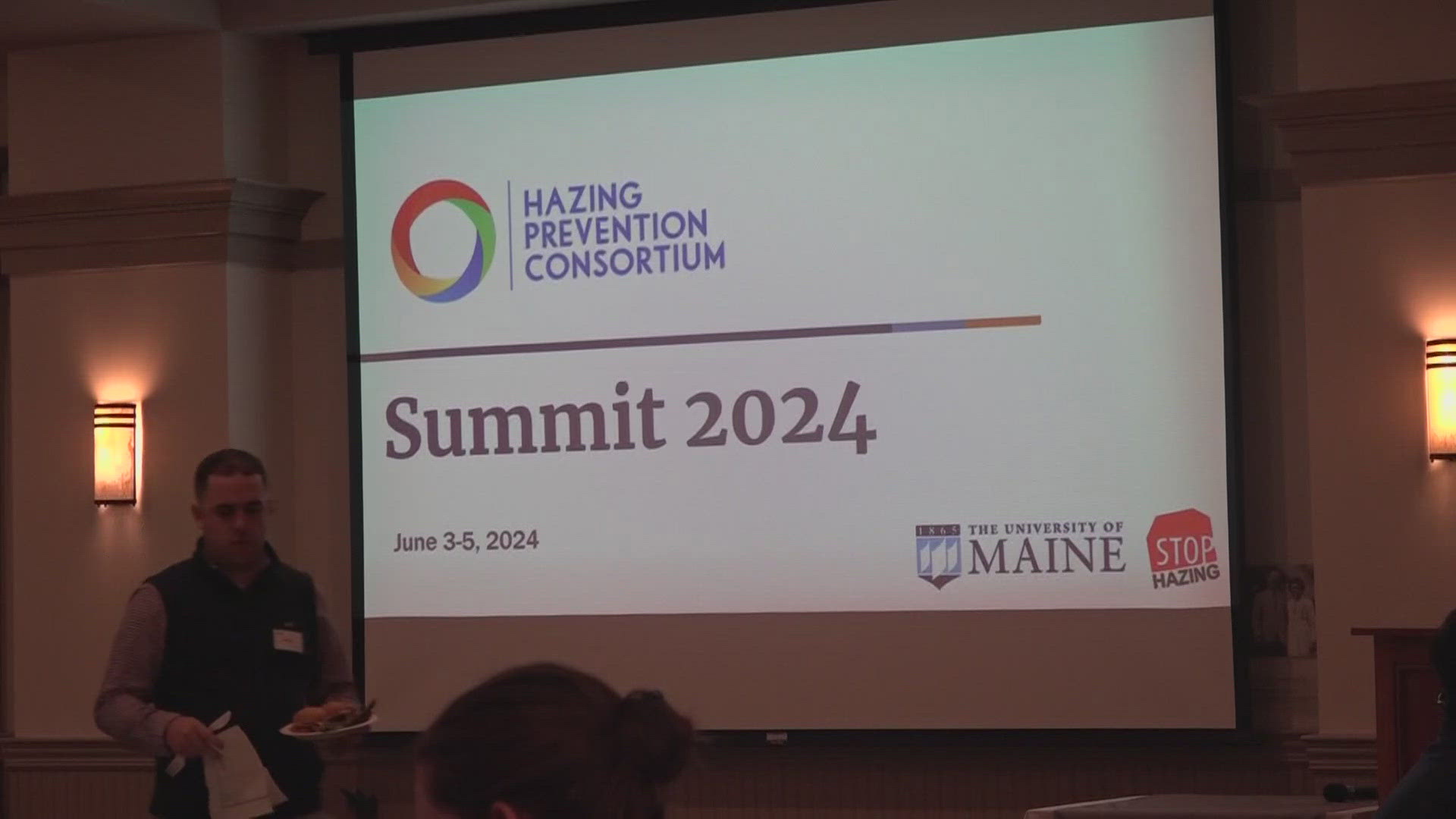ORONO, Maine — Student affairs professionals from 15 colleges and universities are attending a national hazing prevention summit at the University of Maine this week.
According to the organization StopHazing, which works to promote safe and inclusive schools, three out of five college students are subject to hazing.
Participants of the annual Hazing Prevention Consortium summit are working to lower this number by taking a comprehensive public health approach.
"It's not one person's job on a campus, it's a community approach, a collaborative approach, with many different stakeholders involved including students," Elizabeth Allan, a professor of higher education at UMaine and hazing researcher, said.
Allan said collecting data is essential to finding solutions to stop hazing.
She said policy, educating students on the harms of hazing, training them in healthy leadership skills, and a coalition-based approach are key.
Meredith Steward, the operations manager at StopHazing witnessed hazing while she was in college and is now working to protect students.
"Centering well-being and connection in their lives, opposed to hazing, which is ultimately a form of interpersonal violence," Steward said.
One participant who has seen this violence happen at her own university is Laura Santacrose, who is the associate director of the Skorton Center for Health Initiatives at Cornell University.
"We have unfortunately had a couple of campus tragedies over the last two decades, where we've had students die as a result of hazing-related practices," Santacrose said.
She said the majority of people who are hazed experience stress as a result.
"There can even be long-term and lifelong impacts on people's physical and mental health," she added.
But Santacrose said she is invigorated by the commitment of leaders across the country to keep students safe.
"We want them to leave with a sense of hope and optimism that this can change," Allan said.
Allan said if you or someone you know has been hazed, the best thing you can do is report it. Most colleges and universities have an anonymous form you can fill out online.

